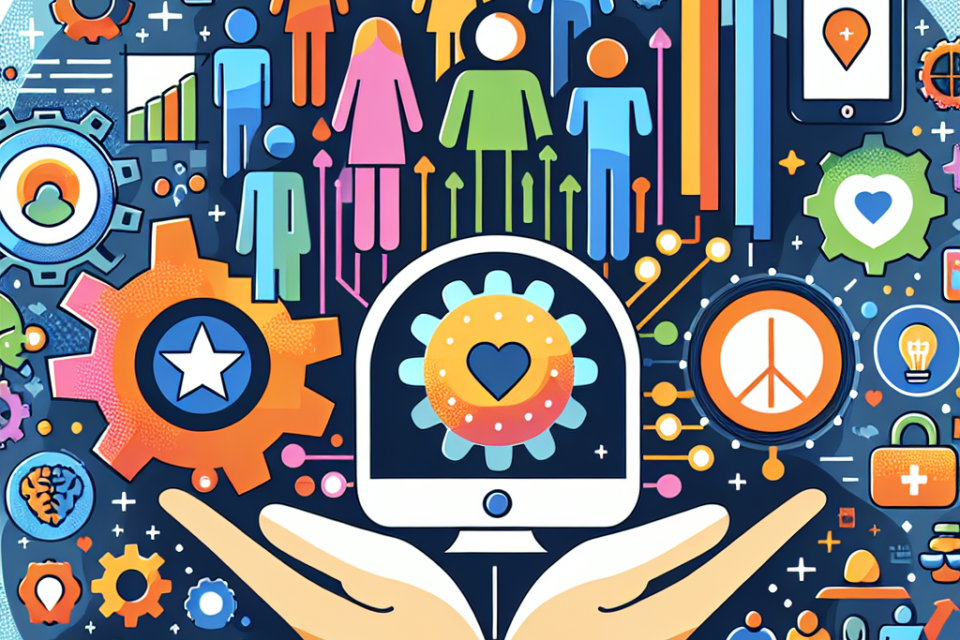The Role of Technology in Improving Mental Health Care

Introduction
The landscape of mental health care is evolving rapidly, driven by technological advancements. As awareness of mental health issues grows, so does the need for innovative approaches to treatment and support. This article delves into the significant role technology plays in enhancing mental health care, making it more accessible and effective for individuals worldwide.
The Explosive Growth of Telehealth
Telehealth has emerged as a cornerstone of modern mental health care, providing a platform for remote consultations and therapy sessions. This development has several benefits:
- Accessibility: Individuals in remote or underserved areas can now access mental health services without the need for extensive travel.
- Convenience: Patients have the flexibility to schedule appointments at times that suit them, ensuring they receive care without disrupting their daily life.
- Reduction in Stigma: Telehealth can help reduce the stigma surrounding mental health care, allowing individuals to seek help more discreetly.
Mobile Apps and Mental Health Support
Mobile apps designed for mental health support have become increasingly popular. These applications offer various tools and resources:
- Self-Monitoring: Users can track their moods, anxiety levels, and triggers, allowing for a better understanding of their mental health.
- Guided Meditations: Apps provide access to mindfulness exercises and meditative practices, which are beneficial in reducing stress and anxiety.
- Peer Support: Many platforms allow users to connect with others facing similar challenges, fostering a sense of community and support.
AI and Data Analytics in Diagnosis and Treatment
Artificial Intelligence (AI) and data analytics are transforming how mental health disorders are diagnosed and treated. Here’s how:
- Personalized Treatments: AI can analyze vast amounts of data to determine the most effective treatment plans tailored to individual patients.
- Predictive Analytics: Algorithms can identify patterns in patient data to predict potential mental health crises, allowing for proactive interventions.
- Enhanced Communication: Tools powered by AI can facilitate communication between patients and providers through chatbots or virtual assistants, ensuring patients receive timely support.
Virtual Reality (VR) Therapy
VR therapy presents immersive experiences for patients dealing with conditions such as PTSD, anxiety disorders, and phobias:
- Controlled Environments: VR allows therapists to create controlled environments that expose patients to their fears gradually and safely.
- Engagement: The immersive nature of VR can increase patient engagement, making therapy more impactful.
- Data Collection: Therapy sessions can be recorded and analyzed, providing insights into patient responses and progress.
The Role of Social Media
Social media platforms can be a double-edged sword in mental health care. On one hand, they offer:
- Community Building: Online communities can provide support and a sense of belonging for those struggling with mental health issues.
- Resource Sharing: Users can share valuable resources, coping strategies, and personal stories that inspire and educate.
- Awareness Campaigns: Social media campaigns can raise awareness, reduce stigma, and encourage individuals to seek help.
However, it’s essential to monitor social media use, as excessive engagement can lead to anxiety, depression, and comparison issues.
Improving Access to Resources
Technology also plays a crucial role in making mental health resources more accessible:
- Online Therapy Platforms: Websites and apps that connect users with licensed therapists can keep costs down and provide more options for those seeking help.
- Educational Resources: Virtual workshops, webinars, and online courses empower individuals with knowledge about mental health, combating misinformation.
- Global Reach: Technology bridges geographical barriers, allowing individuals from different parts of the world to access quality mental health information and care.
Future Trends in Technology and Mental Health Care
As we look to the future, several technological trends may further influence the mental health landscape:
- Wearable Technology: Devices that monitor biometric data can provide insights into mental health, alerting users to potential issues.
- Blockchain for Privacy: Enhancing patient privacy and data security could be achieved through blockchain technology, building trust in digital mental health solutions.
- Integration of Services: The holistic approach to health care will likely see technology integrating mental and physical health services for comprehensive care.
Conclusion
Technology has undeniably transformed mental health care, enhancing accessibility, effectiveness, and overall patient experience. As advancements continue to emerge, they promise to provide even greater opportunities for individuals seeking support. However, it’s essential to strike a balance between technological intervention and human connection to ensure holistic mental health care.
